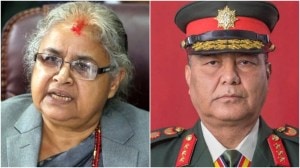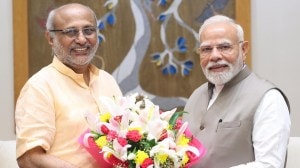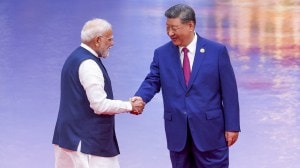It’s worst of both worlds for nobody’s children
JAN 10: Abdul Rashid was born in Thang, Pakistan in 1950. He owed allegiance to the Pakistani flag till 1971 when the Indian Army captured...

JAN 10: Abdul Rashid was born in Thang, Pakistan in 1950. He owed allegiance to the Pakistani flag till 1971 when the Indian Army captured Turtuk, till thenin Pakistan occupied Kashmir (PoK). The five villagesincluding Turtuk became a part of India.
In Pakistan, he studied English and speaks it fluently. However, his children, born in independent India, can barely read. He speaks of medical treatment available in PoK. ‘‘Sadly,’’ he says ‘‘it is not present here.’’ For the 2,500 residents of five villages Turtuk, Tyakshi, Thang, Chalunka and Buchthang, independence in 1971 has brought little happiness.
‘‘We are nobody’s children. Though we are under the Indian flag we have many relatives in PoK. The Pakistanis treat us as Indian enemies and the Indian administration treats us like Pakistani spies,’’ Abdul Qadir, headman of Tyakshi village laments. These children of the post-1971 era have the worst of both worlds.
The lack of development of these border villages is apparent. There are ramshackle school buildings and dispensaries but no teachers and doctors. The area is cut off from the rest of the country due to the inhospitable terrain and distance. Each house is at least two km from the nearest road head in the barren knife-edged rocky mountains of Turtuk. ‘‘The civil administration here is non-existent. And since we are thought to be Pakistani spies, very little attention is paid to development of roads, houses and infrastructure here.
We do not even have electricity. Villages across (in PoK) have hydel power,’’ he adds.
The police too are not confident about the loyalties of the residents of the villages who were ‘‘Pakistanis’’ till 1971. Last year, during the Kargil operations, Ali Bhutto, a resident of the Turtuk village was arrested and a large quantity of AK-47 rifles, ammunition, mines, IEDs and detonators recovered from him. At thattime 25 villagers were taken into custody.
Both Rashid and Qadir explain that the Pakistan Army attempted to subvert them by supplying arms. However, they informed the police but were arrested in turn.‘‘We know that we are a part of India. We may have studied in Pakistan but our children are not even getting an education here,’’ he adds.
Though it is not the job of the Army, Lieutenant General Arjun Ray, the Leh Corps commander has embarked on a massive mission for the integration of the villagers in the Indian system. Explains Brigadier Ashok Duggal, the Siachen Brigade Commander: ‘‘No Army can win a war without the support of the local people. Our task is to get the younger generation into the national mainstream.’’As part of this effort, 31 young boys of the five villages have been recruited into the Ladakh Scouts, a battalion of soldiers belonging to the Ladakh region and deployed in high-altitude areas.
‘‘The General believes that women are the strength behind men. Therefore the Army has started a school for giving vocational training to women. They are being taught sewing and knitting. We are bringing in two computers for the women here,’’ Colonel Yogendra Kumar, deputy commander of Brigade adds.
Photos



- 01
- 02
- 03
- 04
- 05



























